QuestionQUESTION: Hi! So, I have a baby Sulcata tortoise that is about 7 months old and I'm not sure what the sex is. It's been doing this wierd thing where it looks like it's breathing hard to point where it's arms and legs are slightly coming in and out. It's been doing this since i got it about a month ago but I'm really getting concerned now. a quick answer would be greatly appreciated.
ANSWER: Hi Micah,
Tortoises lack moveble ribs but can adjust the pressure within their lungs by moving the limbs in and out when required. If you are seeing that movement regularly however then it is a sign of on-going laboured breathing and is a cause for concern. I would highly recommend a vet visit to evaluate the situation and stop it from progressing to something worse.
Tortoises are prone to both upper and lower respiratory infections and they can be bacterial, viral or even fungal in origin so a proper diagnosis is critical for treatment decisions.
As a very general rule, upper respiratory infections tend to be accompanied by swollen eyes and visible mucous around the nose. You may hear a clicking or whistling sound as they breathe. Lower respiratory infections are more often characterized by breathing difficulty. Both conditions can result in lethargy and lack of feeding.
Are you noticing any other symptoms such as excessive yawning or frequent stretching out of the neck? That is often noted in tortoises with breathing problems.
The reptile immune system is temperature dependent. Make sure that he has a basking area temperature that is right around 100F but also a cooler area (75 to 85F) to move to as well.
Remove anything from the enclosure that could be a source of fine dust or mold.
Sulcatas are native to arid regions but spend alot of time in burrows that have much higher humidity levels. They should have the option of moving between varying humidity levels as they do between temperature levels. You can mimic a humid burrow using a rubbermaid bin with a moist sponge attached to the inside lid. That provides added humidity while avoiding having your tort on a damp surface.
This is a link for some vets in Arizona that treat reptiles. I hope everything turns out alright.
http://www.herpvetconnection.com/arizona.shtml
---------- FOLLOW-UP ----------
QUESTION: Dear, Thea
Well, I know for sure that it is not upper Respiratory infection becasue it does not have any visible mucous or swollen eyes. I also don't hear a whistle or clicking sound and neither the stretching out of the neck and very rarely will it yawn. It does have access to a basking spot at about that temperature and has a cooler area. Nothing in it's enclosure can gather dust and or mold but I never knew about humidity levels. I will do as you said and use a rubbermaid bin with a sponge attached to the inside lid. So overall do you recomend I still take it to a vet? -Thanks
AnswerHi Micah,
The vet question is frequently a difficult one. I have struggled with that decision for my own animals. Often the deciding factor is simply my own peace of mind.
From a practical standpoint, treatment is likely to be shorter, easier and less expensive the earlier the situation is addressed.
You mentioned having the tort for just for one month. I would try to contact the previous owners to ask if this has been an on-going situation for this animal.
If you opt for the "wait and see" approach then I would monitor him extremely closely. If he shows no change in the next week or two or developes any other symptoms like lack of appetite or lethargic behaviour then I would definitely get him in for a check-up. It is difficult to comtemplate an animal having to struggle to breathe.
With proper care and a little luck you could potentially have this tortoise for the rest of your life. You also live in one of the few U.S states where accomodating an adult Sulcata is possible. Best of luck with him or her.

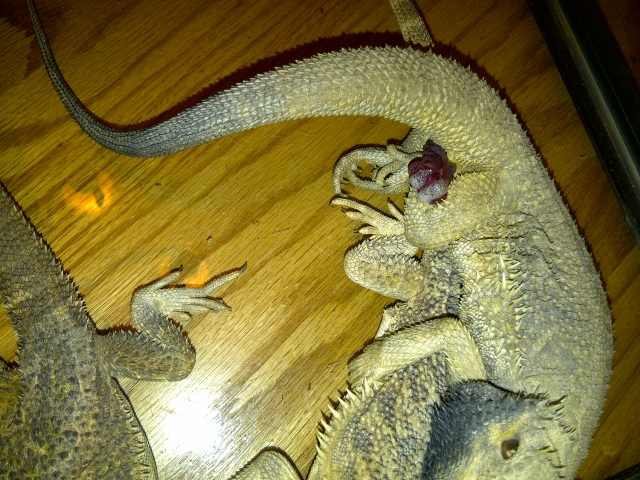 breeding beardies
Questiontrying to get together
QUESTION: I have
breeding beardies
Questiontrying to get together
QUESTION: I have
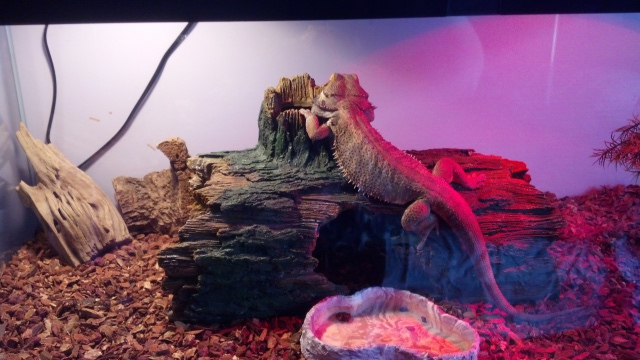 Hypovitaminosis A
QuestionQUESTION: I need help! I have a bearded dragon
Hypovitaminosis A
QuestionQUESTION: I need help! I have a bearded dragon
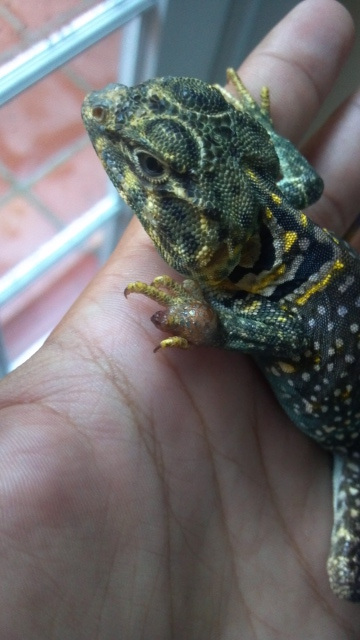 Collared lizard
QuestionQUESTION: Hi, My collared lizards finger has fa
Collared lizard
QuestionQUESTION: Hi, My collared lizards finger has fa
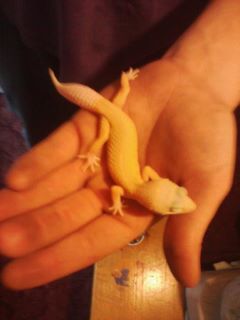 lizards
Questionfrankie the lizard
QUESTION: What kind o
lizards
Questionfrankie the lizard
QUESTION: What kind o
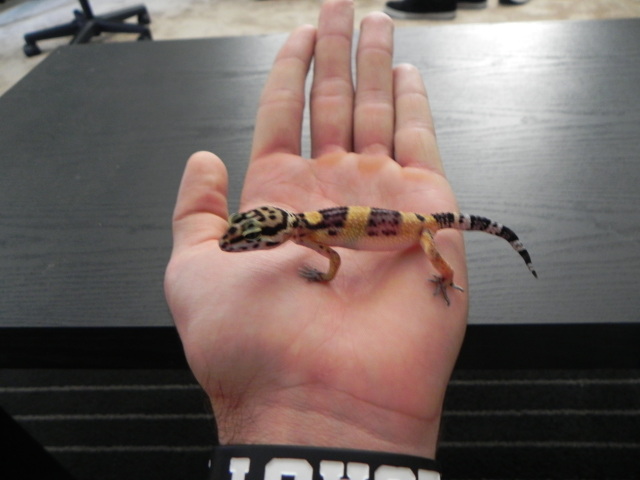 Leopard Gecko... Parasites ?
QuestionMy Gecko
QUESTION: HI Tracie,
I recentl
Leopard Gecko... Parasites ?
QuestionMy Gecko
QUESTION: HI Tracie,
I recentl